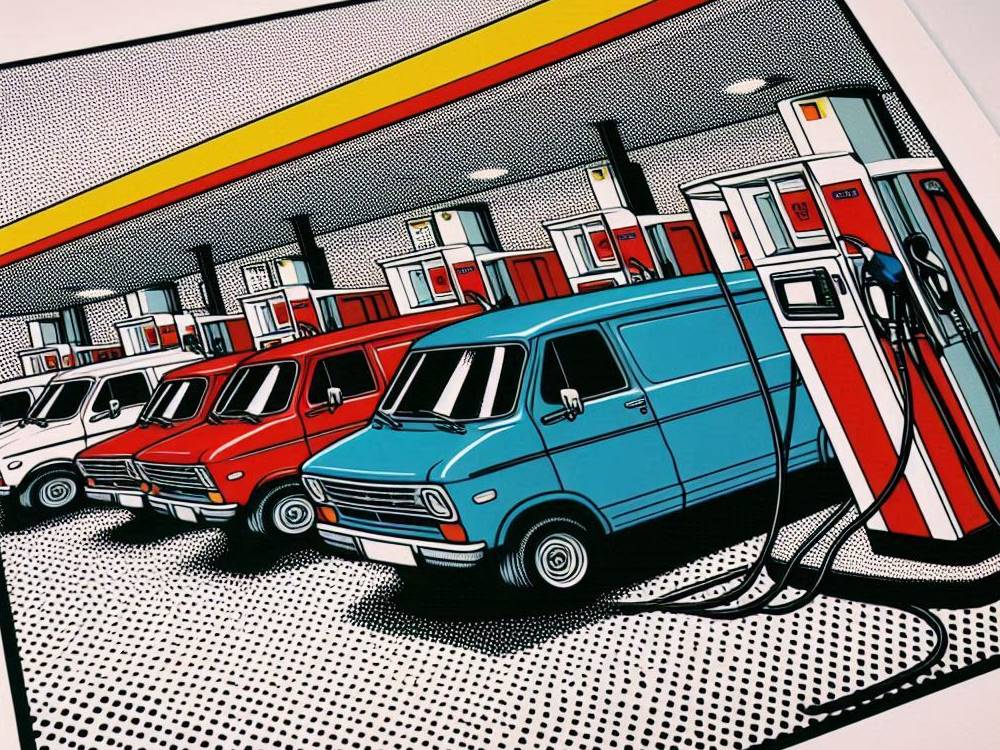Are electric vans the future…
With potential fuel tax hikes, van and delivery drivers may face tough times ahead.
As it stands, fuel costs are already rising quickly.
Furthermore, an additional 3p per litre could add £1 billion to the UK Treasury.
But for van drivers, this means an extra £250 a year on fuel.
Reports say that after a 9-year freeze on fuel tax, Chancellor Rishi Sunak is considering lifting it.
The aim?
To help pay off lockdown costs.
But at what cost for delivery drivers?
Rising Fuel Costs – What’s At Stake?
For van drivers, these hikes don’t just impact the bottom line.
Each added expense eats into profits, especially for small businesses and independent drivers.
The increase, while seemingly small, compounds over hundreds of fill-ups.
It’s a relentless drain on resources.
So, what options are there?
Could Electric Vans Be The Future Of Britain’s Fleets?
With these rising fuel prices, the future of Britain’s vans could very well go green.
In fact, more motor companies are now pledging to produce only electric vehicles by 2030.
But here’s the real question:
Could this shift not only cut costs but also benefit the environment?
Electric vans, while an upfront investment, can lead to lower fuel costs and reduced maintenance over time.
As traditional fuel costs soar, the cost-benefit of going electric looks more attractive.
British Gas certainly thinks so.
British Gas Takes A Bold Step Toward Electric Vans
In fact, British Gas is taking major steps toward a greener fleet.
Recently, they made the biggest electric vehicle order in the UK.
They’ve ordered 1,000 of Vauxhall’s new, all-electric Vivaro-e vans.
This is just the beginning.
Once available, they plan to add more electric vans to their fleet.
Electric vans can help companies cut down on emissions and lead by example.
British Gas, a significant employer of van drivers, is setting the standard.
The New Vauxhall Vivaro-e: A Game-Changer For British Gas
And they’re not stopping there.
The Vauxhall Combo-e, launching this summer, is also 100% electric.
It’s quickly emerging as a strong contender in the small van market.
Moreover, British Gas, owned by Centrica, has ambitious environmental goals.
Specifically, they’re aiming to transition their entire workforce to electric vehicles by 2030.
Preparing For an Electric Fleet By 2030
How will they make it work?
British Gas has plans to provide electric vans to employees who volunteer for the switch.
Additionally, they’ll prioritise areas with high emissions or places where van replacements are needed most.
This targeted strategy ensures that their electric fleet makes a meaningful environmental impact.
What started as an idea—the switch to electric vehicles—is now in full motion, with real changes underway.
Installing Charging Stations For A Greener Future
Worried about charging stations?
Don’t be.
British Gas is installing home chargers and training engineers in electric vehicle use.
This proactive approach means they’re prepared for a seamless transition.
Their engineers won’t be scrambling for charging points or dealing with long downtimes.
With infrastructure in place, the goal of a fully electric fleet is more achievable.
British Gas Commitment to “Net-Zero” Targets
British Gas’s commitment to achieving “net-zero” targets is truly setting a new standard.
Their efforts focus on reducing van emissions while improving local air quality.
But they’re not stopping at promises—they’re taking action.
Lowering van emissions is key to shrinking their daily carbon footprint.
Over 4 Million Deliveries: Supporting Communities In Need
Since the pandemic began, British Gas engineers have delivered over 4 million meals to those in need.
These deliveries highlight the crucial role that van drivers play in supporting local communities.
Their dedication goes beyond just work; it’s a lifeline for many.
This commitment highlights the importance of protecting these essential drivers for many households.
Thinking About Electric Vans? We’ve Got You Covered
So, is it time to think about an electric van?
Perhaps you already own one.
Rising fuel costs and environmental goals could make electric vehicles the new norm.
Whether you’re exploring electric options or already on board, the right insurance is key.
Having the right coverage can make all the difference when making the switch.
Either way, we’re here to help with affordable electric van insurance.
We’ve got you covered—because the future of vans might just be electric.




